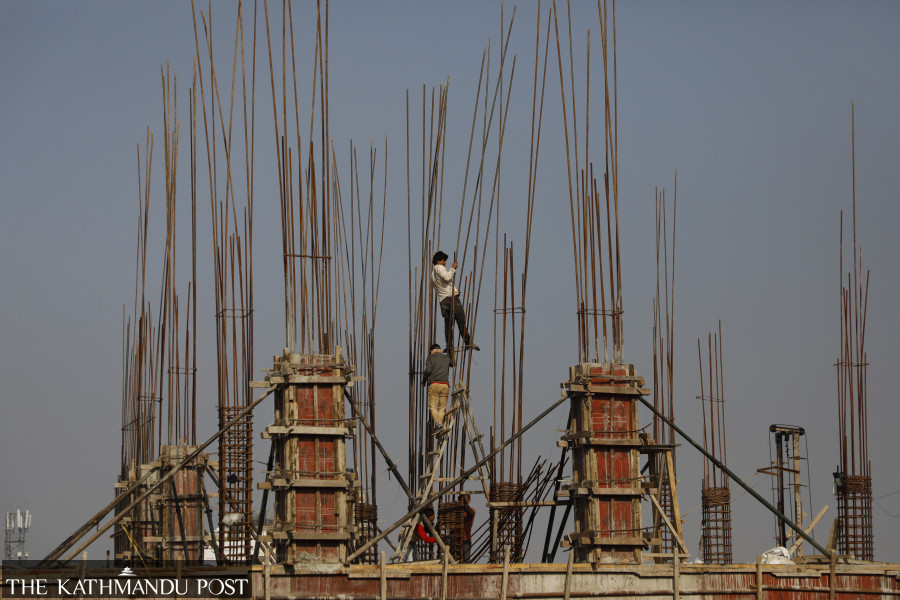National
Local governments struggling to deliver, survey finds
Most local units are reeling under shortage of technical manpower.
Prithvi Man Shrestha
Most local governments have performed poorly in the areas of their jurisdiction due to lack of human resources and necessary expertise, a government survey has revealed.
The survey was conducted among 81 local governments including 26 municipalities and 55 rural municipalities in the fiscal year 2020-21 to identify the existing capacity of local governments and measures to enhance their capacity.
According to the ‘Study Report on Identification of Local Governments’ made public by the Ministry of Federal Affairs and General Administration on Sunday, many local governments have been unable to deliver services due to a lack of human resources, particularly technical staff.
One of the primary jobs of local governments is to issue construction permits in line with the National Building Code and Standards. But the system of issuing house construction permits has been implemented only in 64 percent of the local units surveyed.
Three municipalities and 22 rural municipalities were found not to have implemented the system, according to the report.
“One of the reasons behind the delay in implementation of this system is the lack of technical manpower,” said Basanta Adhikari, spokesperson for the Ministry of Federal Affairs and General Administration.
The report stated that local governments require technical staff including engineers, sub-engineers, assistant sub-engineers, structural engineers and architects to help the local governments in infrastructure development.
The Local Government Operation Act 2017 states that local governments can develop and enforce local standards for building construction.
However, only 56 percent of them were found to have prepared such standards.
Even though reports pointed out the lack of capacity as a major factor behind poor performance in a number of areas, there has been little effort to improve the capacity of local governments, chiefly due to staff shortages.
While the federal government failed to send adequate human resources to local units during the staff adjustment process at federal, provincial and local governments, the governments in provinces too were unable to recruit staff through the Provincial Public Service Commission in the absence of Federal Civil Service Act.
With their capacity curtailed due to the lack of staff, many local governments are operating without periodic plans. In fact, a large number of local governments continue to delay their annual budgets.
According to the report, only 29 percent of local governments had prepared their periodic plans.
The report further stated that 91 percent of local governments surveyed had not prepared any plan regarding the capacity enhancement of local governments.
One of the areas in which the local governments are expected to work is waste management and environment.
A majority of the surveyed local governments were also found to have done little in the area of waste management.
According to the survey report, there is no landfill site in 73 percent of local units while there is no agency to look into waste management in 88 percent of the surveyed local units.
The report suggests forming a team representing an environmental engineer, and sanitation, technical and administrative staff.
Up to 79 percent of the surveyed local governments didn’t have a separate branch to look after environmental issues.
Only 46.91 percent of local governments implemented the provision of IEE (initial environmental examination) and EIA (environmental impact assessment), according to the report.
But, local governments are supposed to approve IEE/EIA in certain projects that fall under their jurisdiction.
A majority of local governments are yet to adopt an online taxation system. According to the report, only 27 out of 81 local governments collected taxes systematically.
The constitution allowed local governments to impose a number of taxes including on property, house rent, house land registration, vehicles, services, advertisements, business transactions, land, and entertainment.
“We have a uniform tax and revenue software which is being used in more than 200 local governments,” said Adhikari. “But we are customising it to enable all 753 local governments to use it.”
The ministry is also working to conduct a nationwide survey to ascertain the needs of local governments.
“This report has given us hints about the needs at the local level. Based on this, we are also conducting another study covering all local governments,” said Gopi Krishna Khanal, national programme director at the Provincial and Local Government Support Programme under the Federal Affairs Ministry.




 16.12°C Kathmandu
16.12°C Kathmandu













